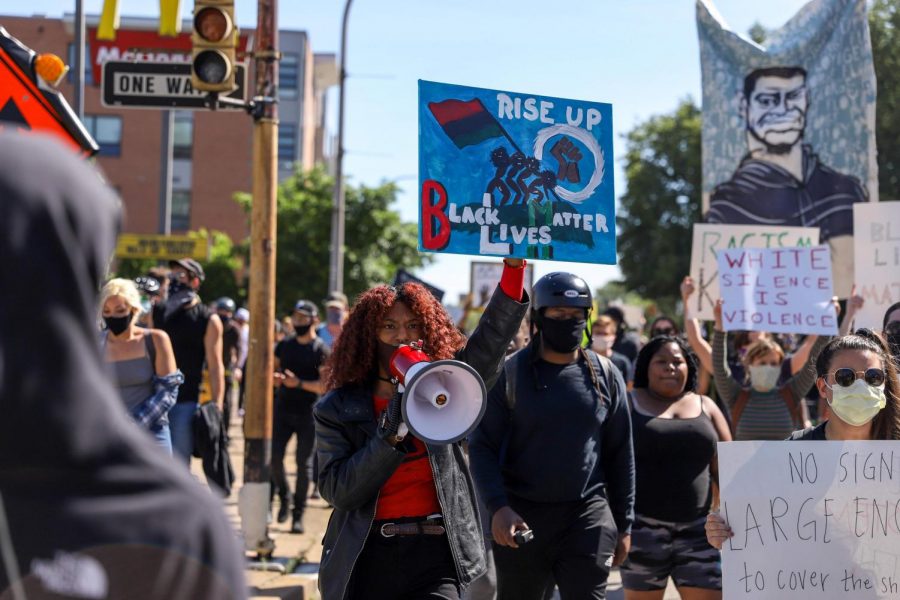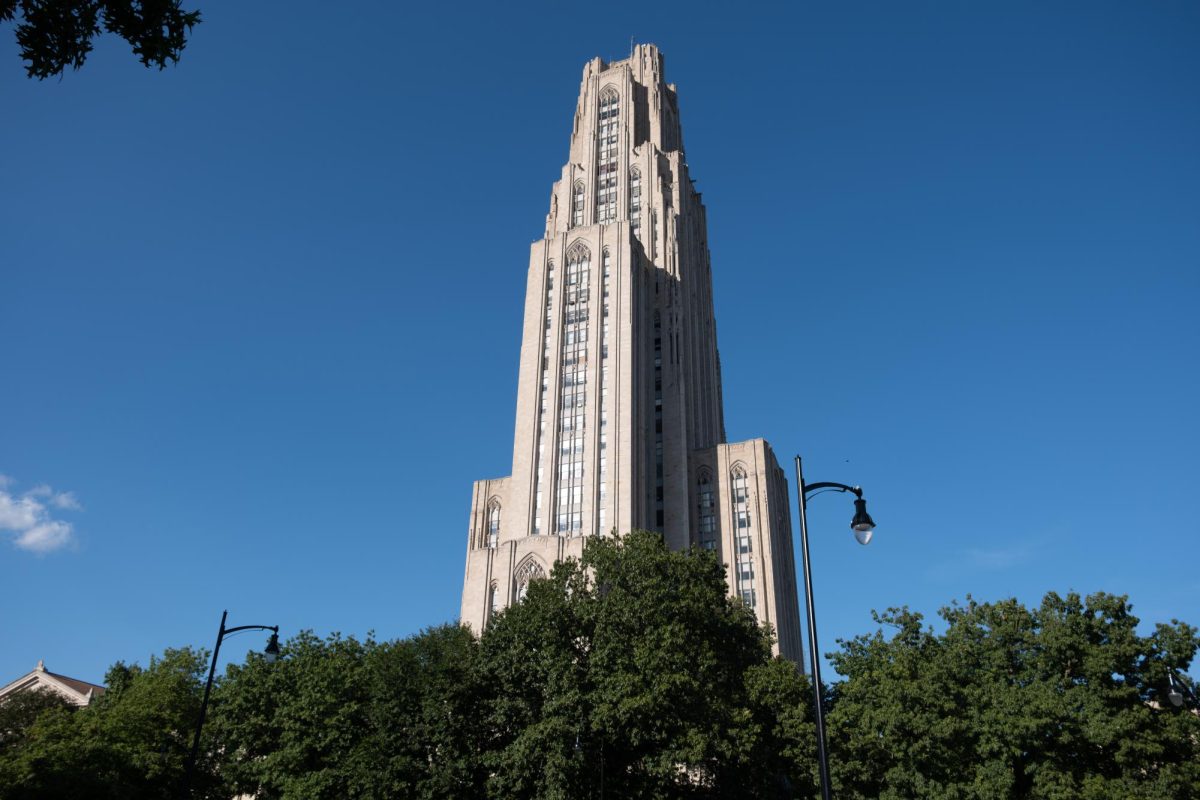Op-ed | Racial Justice: Get Connected, Get Committed
Protestors march in East Liberty in response to the death of George Floyd.
June 2, 2020
We black people have our heads on a swivel these days. Centuries of health care and employment injustices have made us more vulnerable to the COVID-19 pandemic, at the same time that we are processing and responding to this rash of killings of unarmed black civilians. I know that I am desperately trying to hold it together, and I wish peace and comfort to all of us who have been personally affected by these simultaneous traumas.
To many, this latest flurry of death feels unprecedented. Except it’s not. It’s absolutely not. Every trace of American life bears the shadow of racial violence and injustice — from the slave patrols that served as some of America’s first police forces, to the American terrorism that silenced the black vote in the South for a century after slavery, to the 20th-century economic exclusions that had a collective knee on the neck of black people attempting to enter the middle class, to the current era of racialized mass incarceration that has targeted and devastated black and brown families for three generations. As sad as these recent killings have been, the truth is that there have been thousands upon thousands of Breonna Taylors, Ahmaud Arberys and George Floyds. America’s path to “greatness” is riddled with black and brown bodies, nations and lands that have been sacrificed along the way.
To be sure, this has all been very intentional. And it will not be undone passively. I am sometimes asked by white audience members at the Center on Race if they have a place in the struggle for racial justice. I tell them that major civil rights efforts in the United States have always progressed with the active co-labor of white allies. White people can access spaces, conversations and spheres of influence that people of color simply cannot. Dr. Martin Luther King Jr. described how the great stumbling block to freedom is white passivity, and that together we all have to recognize that “injustice must be rooted out by strong, persistent and determined action.” To our white community members — yes, you have a place, and an important one.
There are no silver bullets in this fight, but there are some clear, fundamental steps for a white person who wants to make this country racially just. First, commit to educating yourself on the history of racial injustice in the United States, and not just slavery. My students are often shocked to learn about the intentional, systemic atrocities that have happened in America since then. Next, vigorously pursue anti-racist perspectives — infuse your print sources, media intake and social circles with voices of color who are actively engaged in racial justice efforts. At the same time, your learnings should be concurrent with your own actions. Don’t wait to know exactly what to do. As you increase in perspective, precisely where you should devote your time, talent and treasure will become clearer. Finally, know that this fight takes sacrifice. Prepare yourself for the inconveniences, heartbreaks and personal costs and atonements that flow unpredictably in this quest for freedom.
For me, the greatest solace in this work is that none of us are alone in it. At Pitt, there are many communities that can facilitate and encourage your active participation — from our own Center on Race and Social Problems, to the Office of Diversity and Inclusion, to the Center for Urban Education, to the Office of Health Sciences Diversity. These are just a few.
Pitt students — get connected and get committed. Your time has come, and the work is clear. Black lives matter. Justice for all.
James Huguley is the interim director of Pitt’s Center on Race and Social Problems. He is also an assistant professor in the School of Social Work.



